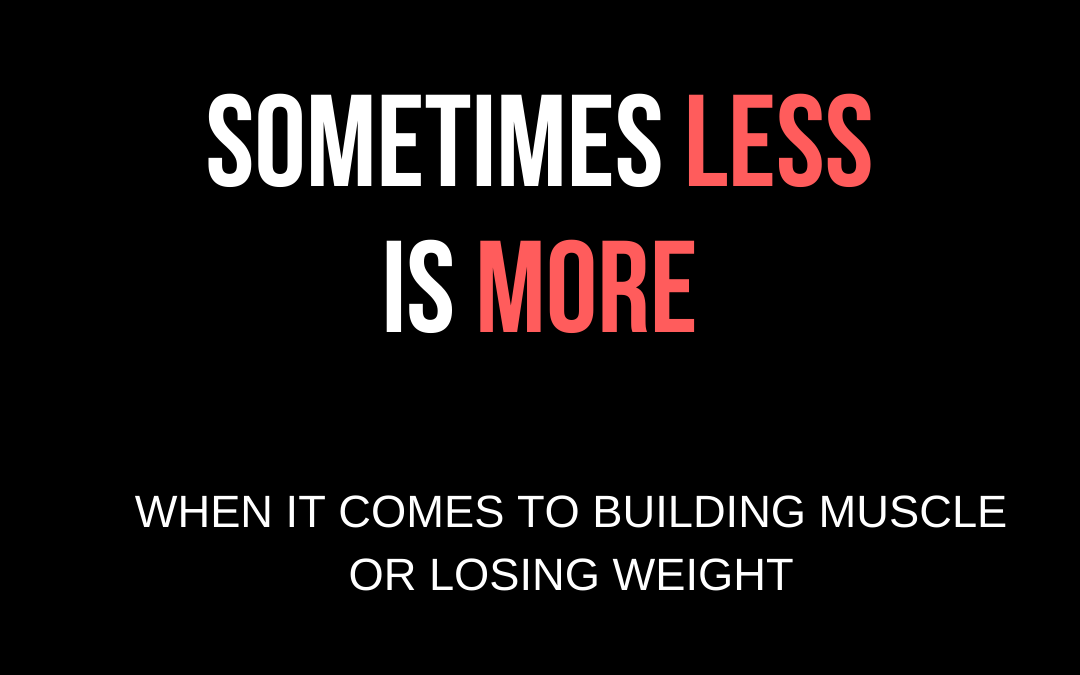Sometimes ‘less is more’, particularly when it comes to building muscle or losing weight.
It’s not always about consuming poverty macros, starving yourself, living in a calorie deficit or going ‘beast mode’ in the gym by pounding your body into submission.
Here’s a more strategic approach with things to consider when looking to gain muscle or lose weight:
- Adherence
- Sustainability
- Motivation
- Fatigue
- Intensity
- Recovery
- Stress
- Health (physically and mentally)
People increasingly spend more time in the gym in a quest to build muscle. They’re thinking that by doing more and lifting heavier is best; however, in reality, their motivation, recovery and Intensity can all take a nose dive.
For example, if I said you had 2 sets of squats instead of 5 sets, you would be more likely to train with a lot more intensity and better form, compared to doing 5 sets which can turn into ‘junk volume’, basically effort that won’t reap any benefits.
A recent study by Barbalcho et al, 2019 actually showed better gains with lower training volume (5-10 sets) compared to a higher volume approach (15-20 sets). Swipe right to check out images 2,3 and 4 on the study and how to structure training volume across the week for optimal gainzzzzz.
Now onto optimal strategies to lose weight. Recent studies have shown that you don’t have to live in a calorie deficit, and in fact you would be much better off implementing regular diet breaks, consuming maintenance calories for 2 weeks for long term weight loss results. I actually covered this topic last year, swipe right to image 5 to see infographic. Below is a summary of the diet break study
Group 1
16 week diet
Consumed 67% maintenance calories
Group 2
30 week diet
Consumed 67% maintenance calories for 2 weeks
2 week diet break eating at maintenance every 2 weeks
Group 2 lost
50% more body fat
less metabolic slowdown, with metabolic rate reducing half as much as much compared to the continuous group
Most importantly, though, the group that dieted continuously regained 15 pounds, which meant they were only 7 pounds lighter than when they started the diet. The group that took diet breaks only regained 9 pounds, which meant they had kept off 22 pounds of weight loss when it was all said and done.
Diet breaks improve metabolism health and reduce the risk of metabolism slowing down. Implementing regular diet breaks are worth considering, especially if you are a female due to possible negative impacts on the menstrual cycle, which can occur in just 5 days, if calories are too restricted.
07938 542 108
[email protected]


Recent Comments